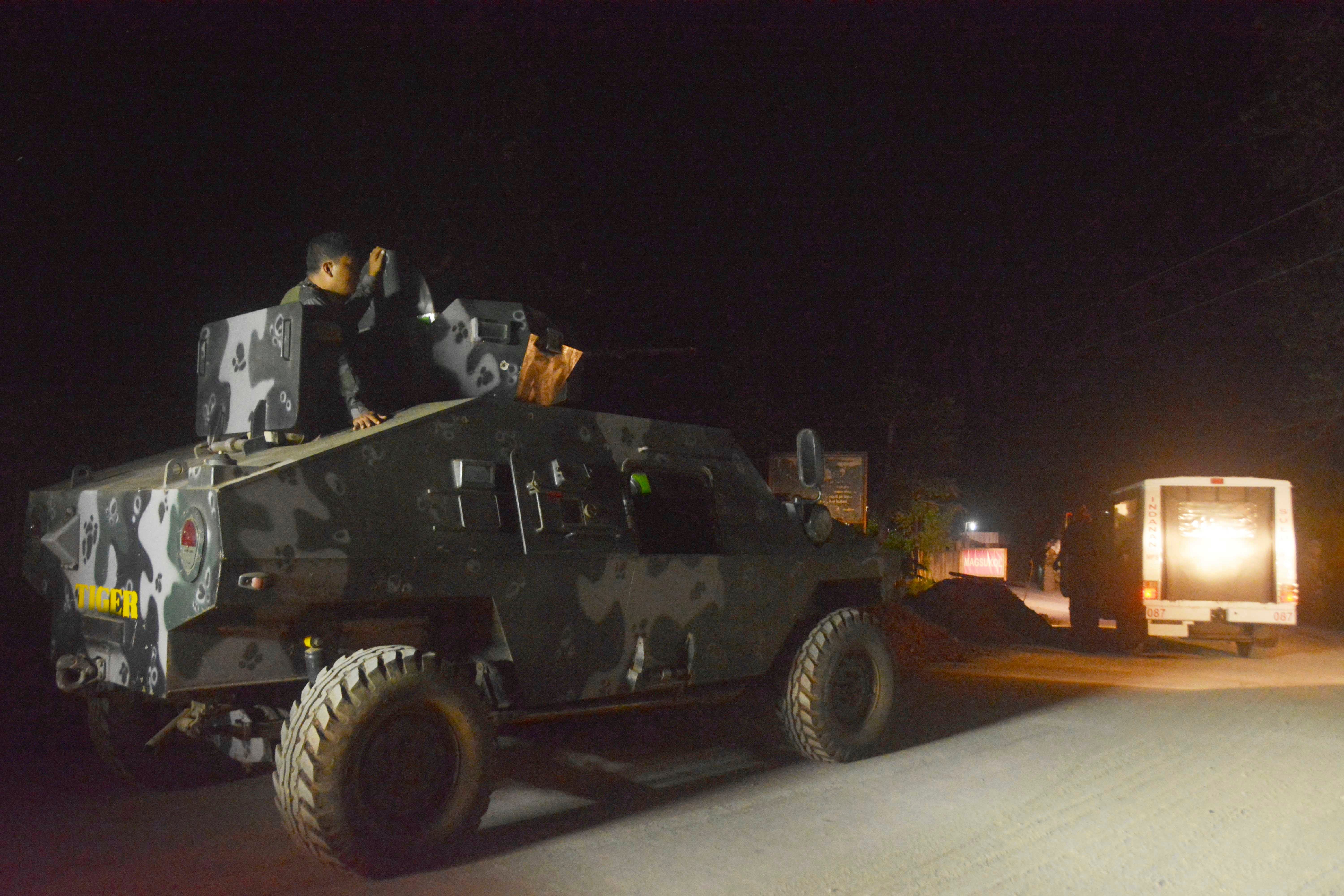Philippine militants accused of beheading tourists surrender
Philippine security officials say two long-wanted Abu Sayyaf militant commanders accused of beheading two kidnapped Canadian tourists and a German have surrendered

Two long-wanted Abu Sayyaf militant commanders accused of beheading two kidnapped Canadian tourists and a German in the southern Philippines have surrendered to authorities, officials said Friday.
Almujer Yadah and Bensito Quitino gave themselves up to military officials in Jolo town in southern Sulu province and surrendered their assault rifles, Sulu military commander Maj. Gen. Ignatius Patrimonio and other security officials said. The officials did not provide details of how and when the surrenders were arranged.
The two were briefly presented in a news conference in an army camp in Jolo and later turned over to police.
Sulu provincial police chief Col. Jaime Mojica said they will face multiple murder and other criminal charges, including violation of the country’s anti-terrorism law. The militants are accused of beheading the hostages after failing to obtain large ransoms they had demanded.
They also were involved in other ransom kidnappings and bomb attacks, Mojica said.
Canadian tourists Robert Hall and John Ridsdel were abducted by Abu Sayyaf gunmen from a marina on southern Samal island along with a Norwegian and a Filipino in September 2015 and taken to jungle camps in Sulu.
Hall and Ridsdel were beheaded by the militants months later after the deadline for payment of the ransoms passed. Videos released by the militants showed the victims being brutally killed in front of an Islamic State group-style black flag. The Norwegian and Filipino hostages were eventually freed.
Canadian Prime Minister Justin Trudeau said at the time that he was horrified by the killings and affirmed Canada’s refusal to “pay ransoms for hostages to terrorist groups, as doing so would endanger the lives of more Canadians.” He said Canada was working with the Philippine government “to pursue those responsible for these heinous acts and bring them to justice, however long it takes.”
Other key suspects in the kidnappings and killings of Hall and Ridsdel were killed earlier in clashes with Philippine forces.
Mojica said the two militants were also involved in the 2017 beheading in Sulu of German hostage Jurgen Gustav Kantner. Abu Sayyaf gunmen seized Kantner at gunpoint and killed a woman sailing with him off neighboring Malaysia’s Sabah state. Villagers later found a dead woman on a yacht with a German flag off Sulu’s Laparan Island.
The United States and the Philippines have labeled the Abu Sayyaf a terrorist organization for kidnappings, beheadings and bombings. The small but brutal group emerged in the early 1990s as an extremist offshoot of a decades-long Muslim separatist rebellion in the southern Philippines, the homeland of minority Muslims in the largely Roman Catholic nation.
The Abu Sayyaf has been weakened considerably by decades of military offensives, surrenders and infighting, and is currently estimated by the military to have less than 200 armed fighters, but remains a national security threat.